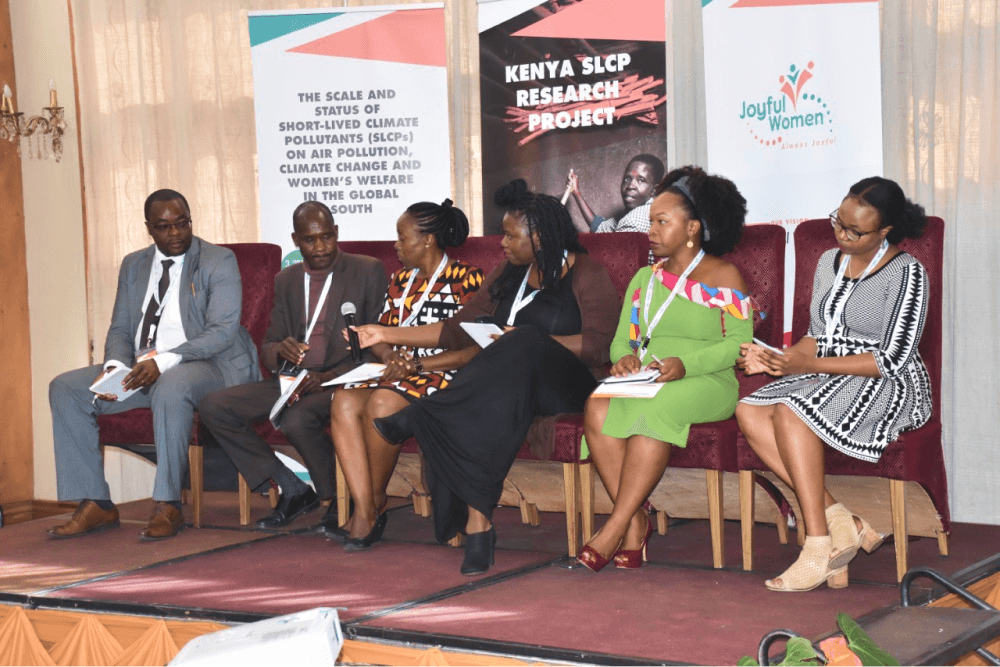
Over the past year, ClimateWorks has supported a program in Kenya that eventually led the country to include super pollutants emissions reductions in its 2020 Nationally Determined Contribution (NDC) for the first time.
Reducing emissions of super pollutant greenhouse gases that are thousands of times more damaging to the climate than carbon dioxide is the only way to slow the pace of global warming before 2050. Eliminating such super pollutant emissions, including methane, hydrofluorocarbons used as refrigerants, and black carbon from diesel consumption and burning biomass, also reduces human exposure to dangerous levels of air pollution. Over the past year, ClimateWorks has supported a program in Kenya to achieve both of these outcomes, eventually leading Kenya to include super pollutants emissions reductions in its 2020 Nationally Determined Contribution (NDC) to the Paris Agreement for the first time. That revised NDC showed marked improvements in ambition and funding support for climate change mitigation and adaptation.
Kenya took great strides to be listed among the 39 nations that submitted their updated NDCs in 2020, the deadline set out by the Paris Agreement. This is a laudable demonstration of climate ambition for a nation whose per capita greenhouse gas emissions are nearly 60% below the global average.
The newly updated NDC includes some significant changes that will strengthen Kenya’s response to the climate crisis.
- Kenya has increased its emissions reduction target from 30% to 32% by 2030 below the baseline of 143Mt of CO2 eq (excluding land and land-use change).
- While the previous NDC was fully conditional on international financial support, Kenya is pledging over US$8 billion from the national budget toward implementing the new plan, or about 13% of the estimated total cost.
- It has now included super pollutant mitigation in its enhanced NDC plans, which represents a significant win for both the climate and human health.

During the multi-stakeholder NDC review process that led to the enhancement of the NDC, ClimateWorks grantees Joyful Women organization, Kenya Meteorological Society, and affiliates from the Kenya Council of Governors, and Friedrich Ebert Stiftung, engaged the Ministry of Environment, civil society, and county executive committee members to present data and information on the extent of super pollutant emissions, and to examine legal and policy strategies to reduce them. This led to heightened national awareness on the climate and health impacts of these harmful pollutants.
The timeliness of Kenya’s new commitment cannot be overstated, as the country’s super pollutant emissions are projected to rise by 2050 due to changing socio-economic conditions. In particular, the updated NDC recognizes the unique challenges presented by the widespread use of biomass to meet household energy needs, and notes that a significant proportion of the US$62 billion needed to implement the NDC will have to go toward addressing the nation’s rising energy demand. This includes investing in green energy infrastructure that will enable a sustainable and just transition away from planned coal-based electricity generation.
The enhanced NDC sends strong signals of commitment to multilateral climate action from East Africa’s fastest-growing economy, even as it struggles to balance a mounting public debt burden of US $66 billion. It is perhaps this dual challenge that has pushed the government to include mechanisms such as debt-for-climate swaps as one of the financing mechanisms for the updated NDC.
It remains to be seen whether the promise of a debt-for-climate swap can deliver super pollutant emissions reductions. However, an approach that focuses on delivering multiple benefits and sustainably developing Kenya’s economy as enshrined in Vision 2030 – the nation’s development blueprint – can provide opportunities to rapidly reduce super pollutant emissions. It will also strengthen the nation’s adaptive capacity to better manage the impacts of climate change across sensitive sectors of the economy.
The results of the consortium study will be published in the third quarter of 2021 and are planned for public release at the UNFCCC 26th session of the Conference of the Parties in Glasgow.

